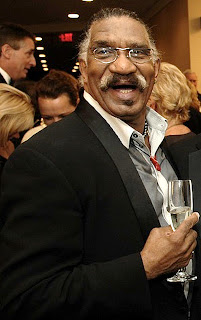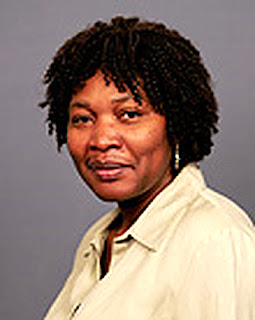Baltimore, MD – Cardiologist Elijah Saunders, M.D., FACC, FACP, FAHA, FASH, professor of medicine and head of the Section of Hypertension at the University of Maryland School of Medicine, has received the 2011 Herbert W. Nickens Award from the Association of American Medical Colleges (AAMC). The Nickens Award honors individuals who have made outstanding contributions to promote justice in medical education and health care equality. For more than 50 years, Dr. Saunders has worked to achieve medical equality and eradicate health care disparities within African-American communities.
Dr. Saunders is an international expert on hypertension in African-Americans, consistently recognized for his patient education efforts to raise awareness of high blood pressure and for his exploration of new treatment options for African-Americans. He has devoted his career to developing innovative programs to reach patients in non-traditional settings, such as barber shops, to educate at-risk patients about the importance of cardiovascular health.
Dr. Saunders developed his clinical and leadership skills at a time when there were few African-American colleagues and even fewer mentors within the field of medicine. Dr. Saunders became the first African-American resident in internal medicine at the University of Maryland in 1960 and the first African-American cardiologist in the state of Maryland in 1965. Despite the challenges, Dr. Saunders followed his own vision for equality in health care and became a compassionate leader for what was, at the time, an often overlooked patient population.
“It is quite fitting that Dr. Saunders be recognized for his extraordinary efforts towards medical equality, during a time in our history when medicine lacked strong African-American leadership,” says E. Albert Reece, M.D., Ph.D., M.B.A., vice president for Medical Affairs at the University of Maryland and dean of the University of Maryland School of Medicine. “His selection for this award speaks to the strong emphasis placed upon the recruitment and promotion of underrepresented minority leaders at the School of Medicine. I commend his efforts for the betterment of all patients.”
“I am honored to be recognized for efforts that have only been a natural extension of my philosophy towards medicine,” says Dr. Saunders. “We’ve made great strides, but my greatest hope is that the efforts we’ve put in place to achieve health care equality will continue to be nurtured by the current and future generations of practitioners.”
After operating a successful private practice for the first 20 years of his career, Dr. Saunders believed he could do more to fight hypertension and raise awareness of the condition if he joined the faculty at the University of Maryland School of Medicine, where he could pursue research that would help advance treatment options for hypertension. In an academic setting, he was able to push the challenges of African-American hypertension into the spotlight. His research showed that some blood pressure medications are more effective than others for African-Americans. As a result of his findings, drug companies now make a point of including African-Americans in their studies.
Other notable highlights of Dr. Saunders’ career:
Played an instrumental role in the desegregation of University of Maryland hospital wards in the 1960’s. The standard until then was to locate patients in the hospital by gender and race. Dr. Saunders and a few of his colleagues chose to integrate the wards by grouping patients according to medical category, thereby putting African-American patients and white patients together.
Co-founded the Association of Black Cardiologists and later served as chairman of the board and president.
Co-founded, was past president and past chairman of the board of the International Society on Hypertension in Blacks.
Co-founded the Heart House of the American College of Cardiology.
Co-founded the American Society of Hypertension.
Received funding from CareFirst to begin the Hair, Heart and Health program in 2006, which received national and international attention and continues to train barbers and hairstylists to pre-screen their customers for hypertension and make appropriate referrals for medical care if necessary.
Received the Louis B. Russell Award, the highest award for contributions to cardiovascular minority health.
Served as chair of the cardiology section of the National Medical Association.
Honored by Associated Black Charities in 2009 as a “Living Legend” honoree for his enduring contributions.
Dr. Saunders received his Bachelor of Science degree from Morgan State College in 1956 and his doctoral degree from the University of Maryland School of Medicine in 1960, where he was one of only four African-American medical students in a class of 140. He subsequently trained in Internal Medicine and Cardiology at the University of Maryland from 1960 through 1965.
Donald E. Wilson, M.D., dean emeritus of the University of Maryland School of Medicine and former vice president of Medical Affairs, was the first University of Maryland honoree to receive the Nickens Award, in 2000.
###
For patient inquiries, call 1-800-492-5538
FOR IMMEDIATE RELEASE: November 7, 2011 Contact: Bill Seiler bseiler@umm.edu 410-328-8919
University of Maryland Medical System, 22 S. Greene Street, Baltimore, MD 21201. 1.800.492.5538 TDD: 1.800.735.2258 Physician Referral: 1.800.373.4111
































